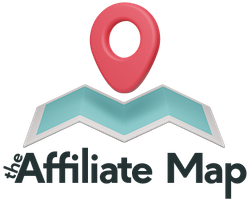How to Improve Website Visibility on Search Engines

how to improve website visibility on search engines
Using Relevant Keywords in Content
So you’ve got a website, but you’re not seeing the traffic you were hoping for. One of the key factors in improving your website’s visibility on search engines is using relevant keywords in your content. Keywords are the words or phrases that people type into search engines when looking for information. By incorporating these keywords into your website content, you can increase the chances of your site appearing in search results.
But how do you know which keywords to use? One way to find relevant keywords is to put yourself in the shoes of your target audience. Think about what words or phrases they would use when searching for your products or services. You can also use keyword research tools like Google Keyword Planner or SEMrush to help you identify popular keywords in your industry.
Once you have a list of relevant keywords, it’s important to strategically incorporate them into your website content. This doesn’t mean stuffing your content with keywords – in fact, that can actually hurt your website’s visibility. Instead, aim to naturally integrate keywords into your content in a way that makes sense and provides value to your readers.
For example, if you run a bakery in New York City, you might want to include keywords like “best cupcakes in NYC” or “artisanal breads in Manhattan” in your website content. These keywords not only help search engines understand what your website is about, but they also attract potential customers who are looking for your products.
When using keywords in your content, be sure to include them in key areas like your page titles, meta descriptions, headers, and body copy. This helps search engines crawl and index your website more effectively, increasing the chances of your site appearing in search results.
Another important aspect of using keywords in your content is to regularly update and refresh your website with new and relevant content. Search engines love fresh content, so regularly adding blog posts, articles, or product updates can help improve your website’s visibility. Plus, incorporating new keywords into your content can attract a wider audience and drive more traffic to your site.
In addition to using keywords in your content, it’s also important to optimize your website’s technical aspects for search engines. This includes things like optimizing your website’s loading speed, creating a mobile-friendly design, and using descriptive URLs. These technical optimizations can help improve your website’s visibility on search engines and provide a better user experience for your visitors.
In conclusion, using relevant keywords in your website content is a crucial step in improving your website’s visibility on search engines. By identifying relevant keywords, strategically incorporating them into your content, and regularly updating your website with fresh content, you can attract more visitors and increase your website’s chances of appearing in search results. So take the time to research and implement relevant keywords in your content – your website’s visibility will thank you for it.
Optimizing Meta Tags and Descriptions
So, you’ve got a website, but you’re not seeing the traffic you were hoping for. Don’t worry, you’re not alone. Many website owners struggle with getting their site to show up on search engines. One way to improve your website’s visibility is by optimizing your meta tags and descriptions.
Meta tags are snippets of text that describe a page’s content. They don’t appear on the page itself, but they are read by search engines to help determine what the page is about. Descriptions, on the other hand, are the brief summaries that appear below the title of a search result. Optimizing both of these elements can help improve your website’s visibility on search engines.
One of the most important meta tags to optimize is the title tag. This is the text that appears at the top of a browser window and is also the clickable link in search engine results. Make sure your title tag accurately describes the content of the page and includes relevant keywords. Keep it concise and compelling to entice users to click on your link.
Next, you’ll want to optimize your meta description. This is the brief summary that appears below the title in search results. While meta descriptions don’t directly impact search engine rankings, they can influence whether or not users click on your link. Make sure your meta description is engaging, informative, and includes relevant keywords. Keep it under 160 characters to ensure it displays properly in search results.
Another important meta tag to optimize is the meta keywords tag. While this tag is not as important as it once was, it can still be beneficial to include relevant keywords that describe the content of your page. Just be sure not to overdo it with keyword stuffing, as this can actually harm your website’s visibility.
In addition to optimizing your meta tags, you’ll also want to make sure your website’s content is high-quality and relevant to your target audience. Search engines prioritize websites that provide valuable, informative content that meets the needs of users. Make sure your content is well-written, easy to read, and includes relevant keywords naturally throughout the text.
You’ll also want to make sure your website is mobile-friendly. With more and more users accessing the internet on mobile devices, search engines prioritize websites that are optimized for mobile viewing. Make sure your website is responsive and loads quickly on all devices to improve your visibility on search engines.
Finally, don’t forget to regularly update your website with fresh, relevant content. Search engines love websites that are regularly updated with new information. This shows that your website is active and engaging, which can help improve your visibility on search engines.
In conclusion, optimizing your meta tags and descriptions is an important step in improving your website’s visibility on search engines. By carefully crafting your title tag, meta description, and meta keywords, you can help search engines better understand the content of your website and improve your chances of ranking higher in search results. Combine this with high-quality content, a mobile-friendly design, and regular updates, and you’ll be well on your way to improving your website’s visibility on search engines.
Building Quality Backlinks from reputable websites
So you’ve got a website up and running, but you’re not seeing the traffic you were hoping for. One of the key factors in improving your website’s visibility on search engines is building quality backlinks from reputable websites. Backlinks are essentially links from other websites that point back to your site. Search engines like Google see backlinks as a vote of confidence in your website’s credibility and authority. The more quality backlinks you have, the higher your website will rank in search engine results pages.
But not all backlinks are created equal. It’s important to focus on building backlinks from reputable websites that are relevant to your industry or niche. This means reaching out to websites that have a good reputation and are considered authoritative in your field. Building backlinks from these types of websites will not only improve your website’s visibility on search engines, but it will also drive targeted traffic to your site.
One way to build quality backlinks is through guest posting. Guest posting involves writing a blog post or article for another website in your industry and including a link back to your own website. This not only helps you build backlinks, but it also allows you to showcase your expertise and reach a new audience. When reaching out to websites for guest posting opportunities, make sure to pitch relevant and valuable content that will benefit their readers.
Another way to build quality backlinks is through creating shareable content. This could be in the form of infographics, videos, or blog posts that provide valuable information or entertainment to your target audience. When you create shareable content, other websites are more likely to link back to your site, increasing your backlink profile and improving your website’s visibility on search engines.
Networking with other website owners in your industry is also a great way to build quality backlinks. By forming relationships with other website owners, you can collaborate on content, share each other’s posts, and ultimately build backlinks to each other’s websites. This not only helps improve your website’s visibility on search engines, but it also allows you to tap into new audiences and expand your reach.
It’s important to remember that building quality backlinks takes time and effort. It’s not something that can be done overnight, but with consistent effort and a focus on creating valuable content, you can improve your website’s visibility on search engines and drive more traffic to your site. So start reaching out to reputable websites, creating shareable content, and networking with other website owners in your industry to build quality backlinks and watch your website climb the search engine rankings.
